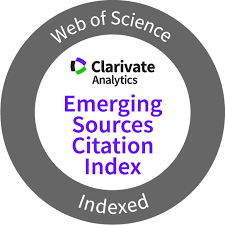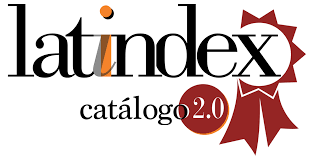Comunicación interna, bienestar y felicidad organizacional en instituciones hospitalarias españolas durante la crisis de la COVID-19 / Internal communication, wellbeing and happiness at work in Spanish hospital institutions during the COVID-19 crisis
DOI:
https://doi.org/10.5783/revrrpp.v12i23.766Palabras clave:
Comunicación interna, Bienestar, Felicidad laboral, Hospitales, COVID-19Resumen
La comunicación es un elemento prioritario en la gestión de las organizaciones, especialmente en épocas de crisis. Este trabajo plantea que las instituciones hospitalarias españolas potenciaron su comunicación interna durante la crisis de la COVID-19 como un factor clave para afrontar la situación, pese a que la felicidad y el bienestar organizacional son aspectos aún poco desarrollados en estas entidades. A través de la revisión documental y de un cuestionario semiestructurado en el que participaron 17 hospitales españoles, la presente investigación pretende determinar el papel de la comunicación interna en estos centros durante la pandemia, así como describir las políticas de bienestar y fomento de la felicidad corporativa que se han producido en este tiempo en las organizaciones estudiadas. Los resultados indican que los hospitales se vieron obligados a potenciar su comunicación interna para mantener el control de la situación, implementando herramientas y fomentando la comunicación con los líderes y directivos. Sin embargo, queda patente la falta de gestión formal del bienestar y felicidad de las plantillas en la mayoría de estas instituciones. Pese a los problemas de salud mental y física de los sanitarios durante la pandemia señalados por la literatura, las medidas desarrolladas aún son escasas y no suelen tener un presupuesto determinado. Este trabajo demuestra que se han producido avances en el terreno de la comunicación interna en los centros hospitalarios en los últimos tiempos, especialmente a raíz de la pandemia de la COVID-19, pero que, no obstante, continúa siendo un campo con multitud de posibilidades por explotar.
Palabras claves: comunicación interna, bienestar, felicidad laboral, hospitales, COVID-19.
Abstract
Communication is a priority element in the management of organisations, especially in times of crisis, as both internally and externally it can facilitate its containment. In the case of COVID-19, given the rapid spread of the pandemic, the impact was global in a very short period of time, so that organisations were forced to adapt to an unprecedented situation. One of the elements that became important in this adaptation process was internal communication, which helped to maintain cohesion between members of the organisation in a period when physical distance and isolation were widespread. Aspects such as managing remote working, loyalty, keeping staff aligned with corporate objectives and the mental health of employees became important issues. In the case of the health sector, whose work has been essential in this period of time, aspects such as communication with employees, effective and decisive leadership, prevention of stress, burnout and compassion fatigue, self-care, people management, promotion of training and knowledge or support in decision-making became particularly important.
This work is framed within the area of study of organisational communication aimed at internal audiences, specifically in its relationship with organisational wellbeing and happiness in the field of healthcare institutions. It argues that Spanish hospital institutions strengthened their internal communication during the COVID-19 crisis as a key factor in dealing with the situation, despite the fact that organisational happiness and well-being are aspects that are still underdeveloped in these institutions. Two general objectives are established: to determine the role of internal communication in Spanish hospitals during the pandemic and to describe the policies of well-being and promotion of corporate happiness that have taken place during this time in the organisations studied. The secondary objectives are to identify the internal communication policies that have been developed, to establish the tools and channels used during this period, to study the role that the promotion of the well-being and happiness of the staff plays in the organisations and to describe the policies that have been implemented in this area. Through a document review and a semi-structured questionnaire in which 17 Spanish hospitals, mostly privately owned, participated, this research aims to determine the role of internal communication in these centres during the pandemic, as well as to describe the policies of well-being and promotion of corporate happiness that have taken place during this time in the organisations studied.
The results indicate that the hospitals were forced to strengthen their internal communication to maintain control of the situation, implementing tools and encouraging communication with leaders and managers. However, the lack of formal management of staff wellbeing and happiness is evident in most of these institutions, as the organisational charts of these institutions lack specific departments or directorates for this purpose, resulting in scarce financial resources being allocated to these issues. Despite the mental and physical health problems of healthcare workers during the pandemic reported in the literature, the measures developed are still limited and often lack a specific budget. This work shows that there has been progress in the field of internal communication in hospitals in recent times, especially in the wake of the COVID-19 pandemic, but that it is still a field with a lot of potential to be exploited, especially with regard to new technologies and social platforms.
Keywords: internal communication, wellbeing, happiness at work, hospitals, COVID-19.
Descargas
Citas
ALMANSA, A. (2011). Del gabinete de prensa al gabinete de comunicación: la dirección de comunicación en la actualidad. Comunicación Social.
ANDRADE, H. (2005). Comunicación organizacional interna: proceso, disciplina y técnica. Netbiblo.
ANDRIKOPOULOS, S. & JOHNSON, G. (2020) The Australian response to the COVID-19 pandemic and diabetes–Lessons learned. Diabetes Research and Clinical Practice, (165), 108246, https://doi.org/10.1016/j.diabres.2020.108246
ARES-BLANCO, S., ASTIER-PEÑA, M. P., GÓMEZ-BRAVO, R., FERNÁNDEZ-GARCÍA, M., & BUENO-ORTIZ, J. M. (2021). Gestión de los recursos humanos y estrategias de vacunación en atención primaria en Europa en la pandemia COVID-19. Atención Primaria, 53(10), 102132. https://doi.org/10.1016/j.aprim.2021.102132
ATAGUBA, O. A. & ATAGUBA, J. E. (2020). Social determinants of health: the role of effective communication in the COVID-19 pandemic in developing countries, Global Health Action, 13(1), https://doi.org/10.1080/16549716.2020.1788263
BAKER, S. R., BLOOM, N., DAVIS, S. J., & TERRY, S. J. (2020). Covid-induced economic uncertainty. National Bureau of Economic Research, 26983, https://doi.org/10.3386/w26983
BARDON, T. & JOSSERAND, E. (2018). Management innovations from a Foucauldian perspective: Time to take action. M@n@gement, 21(4), 1244-1263. https://www.cairn.info/revue-management-2018-4-page-1244.htm
Beau, P. (2019). Un nouveau gestionnaire: le «responsable du bonheur». Gestion, 44(2), 34-37. https://www.cairn.info/revue-gestion-2019-2-page-34.htm
BLANCH, J. M. (2014). Calidad de vida laboral en hospitales y universidades mercantilizados. Papeles del psicólogo, 35(1), 40-47. https://www.papelesdelpsicologo.es/pdf/2320.pdf
BROOKS, S.K, WEBSTER, R.K, SMITH, L.E, WOODLAND, L., WESSELY, S., GREENBERG, N., & RUBIN, G. J. (2020) The psychological impact of quarantine and how to reduce it: Rapid review of the evidence. The Lancet, (395), 912-920. https://doi.org/10.1016/S0140-6736(20)30460-8
CARREÓN, J., BUSTOS, J., SÁNCHEZ, A., MARTÍNEZ, E., & GARCÍA, C. (2020). La estructura del estrés laboral. Revista de Investigación Académica Sin Frontera: División de Ciencias Económicas y Sociales, (32), 1-23. https://doi.org/10.46589/rdiasf.vi32.321
CASTRO-MARTÍNEZ, A. & DÍAZ-MORILLA, P. (2019). Análisis del ranking Great Place to Work y de los premios del Observatorio de Comunicación Interna: prácticas de comunicación interna
en empresas españolas (2014-2018). El profesional de la información, 28(5), 1-13. https://doi.org/10.3145/epi.2019.sep.18
CASTRO-MARTÍNEZ, A. & DÍAZ-MORILLA, P. (2020). Comunicación interna y gestión de bienestar y felicidad en la empresa española. Profesional de la información, 29(3), e290324. https://doi.org/10.3145/epi.2020.may.24
CASTRO-MARTÍNEZ, A., & DÍAZ-MORILLA, P. (2020b). Gestión de la comunicación interna y externa en instituciones hospitalarias privadas en España durante la crisis del COVID-19. Revista de Comunicación y Salud, 10(2), 525-547. https://doi.org/10.35669/rcys.2020.10(2).525-547
CASTRO-MARTÍNEZ, A., DÍAZ-MORILLA, P., & TORRES-MARTÍN, J. L. (2022). The role of internal communication in teleworking management during the Covid-19 crisis. Revista de Comunicación de la SEECI, (55), 29-51. https://doi.org/10.15198/seeci.2022.55.e768
CUENCA, J. & VERAZZI, L. (2018). Guía fundamental de la comunicación interna. Editorial UOC.
CUENCA, A. Y SCHETTINI, P. (2020). Los efectos de la pandemia sobre la metodología de las ciencias sociales. Escenarios, (32), 15-26. https://revistas.unlp.edu.ar/escenarios/article/view/10844/9714
DE LAS HERAS, C., RUIZ, I. & PANIAGUA, F. J. (2018). Gestión de la comunicación en las instituciones. Pearson.
DEL RÍO, O. Y VELÁZQUEZ, T. (2005). Planificación de la investigación en Comunicación: fases del proceso. En Berganza, R. y Ruiz San Román, J. A. Investigar en comunicación (pp. 43-76). McGraw Hill Interamericana de España.
DELASSUS, É. (2019). Le bonheur au travail: un exemple de mauvaise foi managériale?. Septième congrès de la Société de Philosophie des Sciences de Gestion (SPSG), Mayo 2019. Paris, Francia. https://hal.archives-ouvertes.fr/hal-02133761
DI RENZO, L., GUALTIERI, P., PIVARI, F., SOLDATI, L., ATTINÀ, A., CINELLI, G., LEGGERI, C., CAPARELLO, G., BARREA, L., SCERBO, F., ESPOSITO, E., & DE LORENZO, A. (2020). Eating habits and lifestyle changes during COVID-19 lockdown: an Italian survey. Journal of translational medicine, (18), 1-15. https://doi.org/10.1186/s12967-020-02399-5
DO KIM, D. K., & KREPS, G. L. (2020). An analysis of government communication in the United States during the COVID‐19 pandemic: recommendations for effective government health risk communication. World Medical & Health Policy, 12(4), 398-412. https://doi.org/10.1002/wmh3.363
GUILLEMIN, M. (2018). Le bonheur au travail: qu’en disent les scientifiques?. Environnement, risques & santé, 17(5), 487-497. https://doi.org/10.1684/ers.2018.1218
GUTIÉRREZ, A. K., CRUZ, A. Y., & ZALDIVAR, E. D. (2020). Management of health personnel’ psychological safety, in emergency situations by COVID-19 in the hospitable or isolation context. Revista Cubana de Enfermería, 36(2), e3704. http://scielo.sld.cu/scielo.php?script=sci_arttext&pid=S0864-03192020000200022&lng=es&tlng=en.
GUZZO, R. F., WANG, X., MADERA, J. M., & ABBOTT, J. (2021). Organizational trust in times of COVID-19: Hospitality employees’ affective responses to managers’ communication. International Journal of Hospitality Management, (93), 1-11. https://doi.org/10.1016/j.ijhm.2020.102778
HAGEN, L., NEELY, S., SCHARF, R., & KELLER, T. E. (2020). Social media use for crisis and emergency risk communications during the Zika health crisis. Digital Government: Research and Practice, 1(2), 1-21. https://doi.org/10.1145/3372021
JAÉN P. & CORTÉS, A. (2020) Liderazgo en tiempos de crisis sanitaria por COVID-19. Metas Enferm, 23(6),67-72 https://doi.org/10.35667/MetasEnf.2019.23.1003081611
JIMÉNEZ, G. (2019). Influencia de la tecnología en la comunicación organizacional interna. Razón y Palabra, 23(104), 174-200. https://www.revistarazonypalabra.org/index.php/ryp/article/view/1183
KAMPS, B. S., & HOFFMANN, C. (2020). COVID reference. Steinhäuser Verlag.
Koppmann, A., Cantillano, V. & Alessandri, C. (2021). Distrés moral y burnout en el personal de salud durante la crisis por COVID-19, Revista Médica Clínica Las Condes, 32(1), 75-80. https://doi.org/10.1016/j.rmclc.2020.12.009
KUMAR, M., & DWIVEDI, S. (2020). Impact of coronavirus imposed lockdown on Indian population and their habits. International Journal of Science and Healthcare Research, 5(2), 88-97. http://www.ijshr.com/IJSHR_Vol.5_Issue.2_April2020/IJSHR0013.pdf
LI, J.-Y., SUN, R., TAO, W., & LEE, Y. (2021). Employee coping with organizational change in the face of a pandemic: The role of transparent internal communication. Public Relations Review, 47(1), 101984. https://doi.org/10.1016/j.pubrev.2020.101984
LÓPEZ, I., & LÓPEZ, I. (2021). La salud mental del personal sanitario ante la pandemia del Covid-19. Enfermería Investiga, 6(1), 47-50, http://dx.doi.org/10.31243/ei.uta.v6i1.1026.2021.
MARTÍNEZ, G., ZABALEGUI, A. & SEVILLA, S. (2021). Gestión y liderazgo de los servicios de Enfermería en el plan de emergencia de la pandemia COVID-19: la experiencia del Hospital Clínic de Barcelona. Enfermería Clínica, 31(1), S12-S17, https://doi.org/10.1016/j.enfcli.2020.05.002.
MARTÍNEZ-PILLADO, M., VILLALOBOS, J., DEL LLANO-SEÑARÍS, J., & VARELA, M. (2021). Los valores relacionados con la formación de profesionales sanitarios en un entorno COVID-19. Educación Médica, 22(1), S16-S18, https://doi.org/10.1016/j.edumed.2020.09.022.
MEDINA, P. (2012). La comunicación hospitalaria 2.0: Un nuevo desafío para la comunicación institucional. Austral Comunicación, 1(2), 189-202. https://doi.org/10.26422/aucom.2012.0102.med
MEDINA, P. (2021). La promoción de la marca hospitalaria a través de la comunicación interpersonal que mantiene el profesional de la salud en las redes sociales. Tripodos, (44), 9-23. https://doi.org/10.51698/tripodos.2019.44p9-23
MELKI, J.,TAMIM, H., HADID, D., FARHAT, S., MAKKI, M., GHANDOUR, L. & HITTI, E. (2022). Media Exposure and Health Behavior during Pandemics: The Mediating Effect of Perceived Knowledge and Fear on Compliance with COVID-19 Prevention Measures, Health Communication, 37(5), 586-596, https://doi.org/10.1080/10410236.2020.1858564
MEN, R. & YUE, A. (2019). Creating a positive emotional culture: Effect of internal communication and impact on employee supportive behaviors. Public Relations Review, 45(3), 163-174. https://doi.org/10.1016/j.pubrev.2019.03.001
MEN, L. R., QIN, Y. S., & JIN, J. (2022). Fostering employee trust via effective supervisory communication during the COVID-19 pandemic: Through the lens of motivating language theory. International Journal of Business Communication, 59(2), 193–218. https://doi.org/10.1177/23294884211020491
MICALETTO, J. P. Y GALLARDO, L. (2015). La comunicación institucional en la crisis del ébola en Europa: el caso de la crisis española de 2014 en sus inicios. Revista Internacional de Relaciones Públicas, 5(9), 89-110. http://dx.doi.org/10.5783/RIRP-9-2015-06-89-110
MIQUEL, S. & ACED, C. (2019). Perfil de los responsables de comunicación interna en España.
Revista de la Asociación Española de Investigación de la Comunicación, 6(11), 99-118.
https://doi.org/10.24137/raeic.6.11.7
MORENO, E. (2008). Gestión de la información y la comunicación en emergencias, desastres y crisis sanitarias. Emergencias: Revista de la Sociedad Española de Medicina de Urgencias y Emergencias, 20(2), 117-124, https://dialnet.unirioja.es/servlet/articulo?codigo=2580937
NAJEH, H. (2019). The function “Chief happiness officer” and the double performance. Reality and perspectives in African countries. Case of B2S Morocco. Journal of behavior studies in organizations, (2), 18-29. https://doi.org/10.32038/JBSO.2019.02.03
RUCK, K. & WELCH, M. (2012). Valuing internal communication; management and employee perspectives. Public relations review, 38(2), 294-302. https://doi.org/10.1016/j.pubrev.2011.12.016
SALAS, A. (2014). La medición de la felicidad en el trabajo y sus antecedentes: un estudio empírico en el área de alergología de los hospitales públicos españoles. Trabajo, (28), 83-116. https://doi.org/10.33776/trabajo.v0i28.2200
SALAVERRÍA, R., BUSLÓN, N., LÓPEZ-PAN, F., LEÓN, B., LÓPEZ-GOÑI, I., ERVITI, M. (2020). Desinformación en tiempos de pandemia: tipología de los bulos sobre la Covid-19. El
profesional de la información, 29(3), e290315. https://doi.org/10.3145/epi.2020.may.15
SAMANIEGO, A., URZÚA, A., BUENAHORA, M., & VERA-VILLARROEL, P. (2020). Symptomatology associated with mental health disorders in health workers in Paraguay: COVID-19 effect. Revista Interamericana De Psicología, 54(1), e1298. https://doi.org/10.30849/ripijp.v54i1.1298
SPOORTHY, M. S., PRATAPA, S. K., & MAHANT, S. (2020). Mental health problems faced by healthcare workers due to the COVID-19 pandemic–A review. Asian journal of psychiatry, (51), 102119. https://doi.org/10.1016/j.ajp.2020.102119
SUN, R., LI, J.-Y. Q., LEE, Y., & TAO, W. (2021). The role of symmetrical internal communication in improving employee experiences and organizational identification during COVID-19 pandemic-induced organizational change. International Journal of Business Communication, 232948842110506. https://doi.org/10.1177/23294884211050628
TRAMONTIN, E., BEUREN, I. M., & GASPARETTO, V. (2020). Influência da comunicação interna e do engajamento no desempenho de tarefas de servidores públicos. Revista Internacional de Relaciones Públicas, 10(20), 179-200. http://dx.doi.org/10.5783/RIRP-20-2020-10-179-200.
TRAUB, C. & SAPAG, J.C. (2020). Personal Sanitario y Pandemia COVID-19 en Chile: Desafíos en Salud Mental. Revista médica de Chile, 148(9), 1371-1372. https://dx.doi.org/10.4067/S0034-98872020000901371
TWOREK, H., BEACOCK, I., & OJO, E. (2020). Democratic health communications during Covid-19: a RAPID response. Vancouver: UBC Centre for the Study of Democratic Institution. https://democracy2017.sites.olt.ubc.ca/files/2020/09/Democratic-Health-Communication-during-Covid_FINAL.pdf
VANHÉE, L. (2013). Happy RH: Le bonheur au travail, rentable et durable. La Charte Professional Publishing.
WARR, P. (2013). Fuentes de felicidad e infelicidad en el trabajo: una perspectiva combinada. Revista de psicología del trabajo y de las organizaciones, 29(3), 99-106. https://doi.org/10.5093/tr2013a15
WANG, Y., HAO, H., & PLATT, L. S. (2021). Examining risk and crisis communications of government agencies and stakeholders during early-stages of COVID-19 on Twitter. Computers in human behavior, 114, 106568. https://doi.org/10.1016/j.chb.2020.106568
WORLD HEALTH ORGANIZATION (WHO) (2005). WHO outbreak communication guidelines. WHO. https://www.who.int/csr/resources/publications/WHO_CDS_2005_28/en/
YBASETA-MEDINA, J., & BECERRA-CANALES, B. (2020). El personal de salud en la pandemia por COVID-19. Revista Médica Panacea, 9(2), 72-73. https://doi.org/10.35563/rmp.v9i2.322
ZANGRILLO, A., BERETTA, L., SILVANI, P., COLOMBO, S., SCANDROGLIO, A. M., DELL'ACQUA, A., ... & TRESOLDI, M. (2020). Fast reshaping of intensive care unit facilities in a large metropolitan hospital in Milan, Italy: facing the COVID-19 pandemic emergency. Critical care and resuscitation, 22(2), 91-94. Epub ahead of print. PMID: 32227819. https://europepmc.org/article/med/32227819
YUE, C. A., MEN, L. R. & BERGER, B. K. (2021). Leaders as Communication Agents. En L. R. MEN, L. R. & VERČIČ, A. T. (EDS.). Current Trends and Issues in Internal Communication: Theory and Practice (pp. 19-39). Electronic book. Palgrave Macmillan. https://doi.org/10.1007/978-3-030-78213-9
Descargas
Publicado
Cómo citar
Número
Sección
Licencia
Los autores que publican en esta revista están de acuerdo con los siguientes términos:- Los autores conservan los derechos de autor y garantizan a la revista el derecho de ser la primera publicación del trabajo al igual que licenciado bajo una Creative Commons Attribution License que permite a otros compartir el trabajo con un reconocimiento de la autoría del trabajo y la publicación inicial en esta revista.
- Los autores pueden establecer por separado acuerdos adicionales para la distribución no exclusiva de la versión de la obra publicada en la revista (por ejemplo, situarlo en un repositorio institucional o publicarlo en un libro), con un reconocimiento de su publicación inicial en esta revista.
- Se permite y se anima a los autores a difundir sus trabajos electrónicamente (por ejemplo, en repositorios institucionales o en su propio sitio web) antes y durante el proceso de envío, ya que puede dar lugar a intercambios productivos, así como a una citación más temprana y mayor de los trabajos publicados (Véase The Effect of Open Access) (en inglés).




